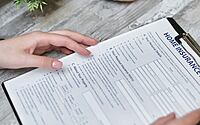What to Look for When Shopping for Homeowners Insurance
Your home is likely to be your greatest asset, so it’s wise to seek out a homeowner’s insurance policy to protect your dwelling and its contents in case of damage. This can range from minor damage caused to the property through to total loss due to extreme weather events.
As with any financial product, it’s generally a good idea to shop around to find the best policy for your needs. Here are the main points to consider when comparing homeowners insurance quotes for your property. Invest time in finding a reputable insurer who can offer you the best deal. Here are some sources to check with:
- Your state’s Department of Insurance and Financial Services (to check for registration)
- The NAIC (National Association of Insurance Commissions)
- Trusted family and friends who have a positive experience with their existing provider
- Rating companies (to assess the financial stability of the company).
Consumer guides and online insurance quote services can also be helpful – but ensure any information provided is impartial and take into account other important factors besides price, such as customer service quality.
Ways to Lower the Cost
Once you have narrowed your choices to three insurance providers, ask for quotes from them, and find out what they can do to help lower the costs. Keeping a good credit record helps, as this can impact how your policy is priced. Other ways to lower the cost of your home insurance include:
- Raising the deductible: A portion of the monetary losses which the policyholder pays for prior to the insurance company making a payout. The higher the deductible, the more you can save (depending on your budget).
- Those requiring extended coverage for specific weather events may need a separate deductible (you can find more information on this via sources such as FEMA (The Federal Emergency Management Agency). The same applies if you run a business from your home.
- Weighing up the cost of purchasing auto and homeowner’s insurance from two separate companies versus the same one (in some cases this can save on between 5% to 15% of the premium).
- Home improvements to protect against fire, theft and other damages can also help (ask your company representative or agent which measures you can take to make your home more secure).
- Removing high-risk items that could cause injury (such as trampolines or pools).
- Paying out-of-pocket for smaller claims (some insurers offer discounts if you remain claim-free for a certain period).
- Asking about specific discounts offered depending on factors such as retirement age and the state you live in.
- Check purchasing via a government plan versus private (if you live in a high-risk area)
- If you are about to purchase a home, check the CLUE (Comprehensive Loss Underwriting Exchange) report. This will tell you about the insurance claim history of the property and alert you to any potential issues that may arise.
- Workplaces and other professional settings (for example if you are an academic at a university) may offer group insurance programs that are cheaper than elsewhere.
Long term policyholders can receive special discounts, but review your policy regularly to ensure you are getting the best deal. Check for “floaters” (items not covered by your standard policy) to make sure you are not over-insured and review the value of contents and policy limits at least once a year.
- by Matt Watts






